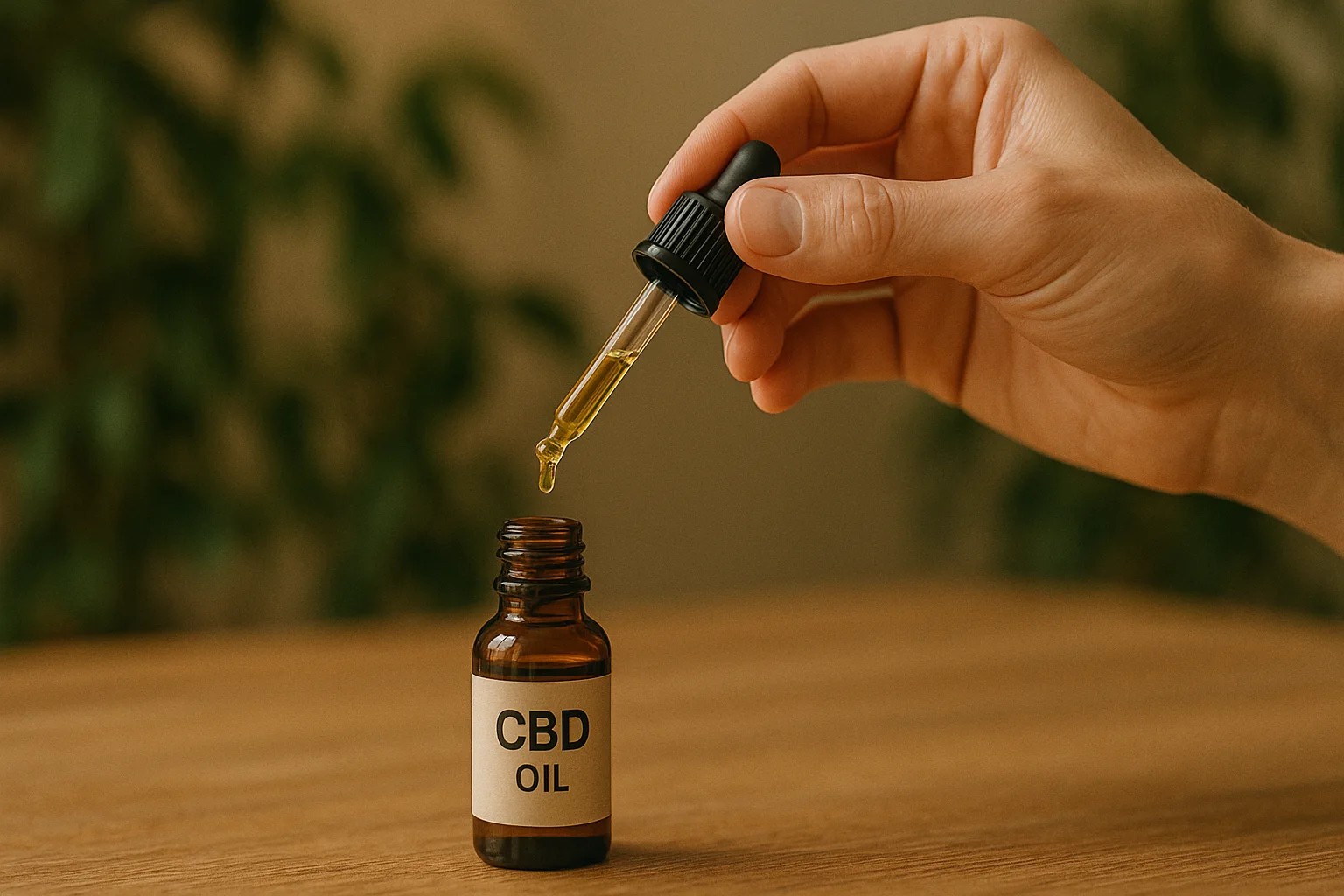Cannabis has long been discussed as both a potential relief and a risk for mental health. As research grows and medical use becomes more accepted across Europe, many are asking: Can cannabis truly help with anxiety, depression, and stress? The answer, as with most things in health, lies in balance, mindful consumption, and understanding the plant’s chemistry from cannabinoids like THC and CBD to mood-influencing terpenes. This guide explores the latest science and practical advice on the best cannabis strains for anxiety and depression, microdosing for stress, and how to find emotional balance through responsible use.
Understanding Cannabis and Mental Health
The endocannabinoid system (ECS) a natural network of receptors in the brain and body plays a vital role in regulating mood, stress response, and emotional balance. Cannabinoids such as THC and CBD interact with this system, influencing how we experience anxiety, motivation, and relaxation.
- THC (tetrahydrocannabinol) can boost dopamine and provide euphoria at low doses — but in excess, it may trigger anxiety or paranoia in sensitive users.
- CBD (cannabidiol), on the other hand, has no psychoactive effects and may help calm overactive stress responses.
The key is finding the right ratio often a balanced or CBD-dominant strain — that supports calm without overstimulation.
Cannabis and Anxiety: Finding Calm, Not Panic
Many people turn to cannabis to relieve anxiety, but results can vary. For some, it offers deep relaxation; for others, it can increase nervousness. The difference often comes down to strain choice and dosage.
Best Cannabis Strains for Anxiety
When searching for the best strains for anxiety relief, focus on low-THC, high-CBD varieties and those rich in relaxing terpenes such as linalool, myrcene, and beta-caryophyllene.
Some popular options include:
- ACDC – A balanced strain with high CBD and minimal THC; ideal for social anxiety.
- Harlequin – Uplifting but calming; great for daytime use.
- Cannatonic – Known for reducing tension without causing drowsiness.
- Ringo’s Gift – A gentle blend of CBD and THC for subtle mood stabilization.
What Type of Cannabis Is Good for Anxiety?
Look for strains with THC below 10% and CBD above 8%. CBD helps moderate the psychoactive effects of THC, creating a smoother, calmer experience. Vaping or microdosing can also prevent overconsumption, reducing the risk of anxiety spikes.
Best Cannabis Strain for Anxiety and Depression
Some hybrid strains balance both mood uplift and anxiety control, such as:
- Jack Herer – Energizing yet stable; promotes creativity and focus.
- Canna-Tsu – Balanced CBD: THC profile suitable for emotional regulation.
- Pennywise – Known for its calming, antidepressant-like effects without sedation.
Cannabis and Depression: A Delicate Balance
When discussing cannabis for depression, nuance is essential. While cannabis may help some users lift their mood and reduce stress, chronic or heavy use can sometimes lead to reduced motivation or dependency.
Is Cannabis Good for Depression?
Research suggests that CBD may support serotonin activity, which is linked to improved mood and resilience. Low doses of THC may also temporarily boost dopamine, offering emotional relief for some patients. However, overuse or high-THC strains can have the opposite effect, especially when used as an escape rather than a supplement to therapy or lifestyle change.
In short, Cannabis may support mood regulation but it’s not a cure. It works best as part of a holistic mental health approach, including therapy, sleep, exercise, and social connection.
Best Cannabis for Depression
Strains that combine gentle euphoria with motivational support include:
- Lemon Haze – Uplifting and energizing, great for morning use.
- Sour Tsunami – Balanced mood without mental fog.
- Harle-Tsu – High-CBD hybrid that promotes calm focus.

Microdosing Cannabis for Stress and Mindfulness
Microdosing cannabis, taking very small amounts (usually 1–2 mg of THC or CBD), is gaining popularity for stress management. This approach helps users enjoy the plant’s relaxing and mood-stabilizing benefits without intoxication. When combined with mindfulness or meditation, microdosing can support a state of calm awareness.
Cannabis and Mindfulness
Cannabis can enhance body awareness and relaxation during meditation, yoga, or journaling — if used consciously. The goal isn’t to “get high,” but to deepen focus and presence.
Balancing Work Stress with Cannabis
A growing number of professionals use CBD oils or mild strains to ease work-related anxiety and mental fatigue. CBD helps reduce cortisol, the stress hormone, and promotes a more centered mindset throughout the day. However, microdosing or using low-THC options is essential to avoid impairment during work hours.
How Much CBD Should a Beginner Start With for Anxiety?
If you’re new to CBD, always start low and slow.
- Begin with 5–10 mg of CBD per day and observe how your body responds.
- Gradually increase by 5 mg every few days until you notice reduced anxiety without drowsiness.
- For CBD oil, that’s usually a few drops under the tongue, taken twice a day.
Remember: consistency is key. CBD works best when taken daily over time.

CBD vs THC for Anxiety
While both cannabinoids can influence mood, their effects differ greatly:
Compound | Effect on Anxiety | Psychoactivity | Best For |
CBD | Calms and balances the nervous system | None | Daily stress, mild anxiety |
THC | Euphoria at low doses, anxiety at high doses | Yes | Occasional or evening relaxation |
Balanced (1:1) | Gentle, sustained relief | Mild | Anxiety with low mood |
For most users, CBD-dominant or balanced ratios provide the best mental clarity and calm.
Best Practices for Mental Health & Cannabis
- Start with purpose: Use cannabis as a wellness tool, not as an escape.
- Track your response: Keep a journal of strain, dosage, and mood.
- Combine with therapy: Cannabis can complement mindfulness, CBT, or yoga.
- Stay hydrated and rested: Good sleep enhances the benefits.
- Consult a doctor: Especially if you take antidepressants or anxiety medication.
Final Thoughts
Cannabis can play a supportive role in mental health easing anxiety, lifting mood, and reducing stress when used mindfully, at the right dose, and with the right strain. The future of cannabis medicine lies not in escapism but in intentional, balanced healing helping people feel present, peaceful, and connected.
Frequently Asked Questions
Cannabis may help some people manage symptoms of depression by improving mood and reducing stress. However, it’s not a cure and should be used mindfully, ideally under professional guidance.
Strains high in CBD and lower in THC are often preferred for anxiety. CBD-dominant strains like ACDC or Harlequin can promote calm without strong psychoactive effects.
Popular balanced strains include Cannatonic, Jack Herer, and Northern Lights. These strains combine relaxation with gentle mood elevation, supporting emotional balance.
Most beginners start with 5–10 mg of CBD per day, observing effects and adjusting gradually. Always start low and go slow to find your ideal dose.
Microdosing means taking very small, controlled amounts of cannabis enough to reduce stress or improve focus without feeling high. It helps maintain clarity while easing tension.
